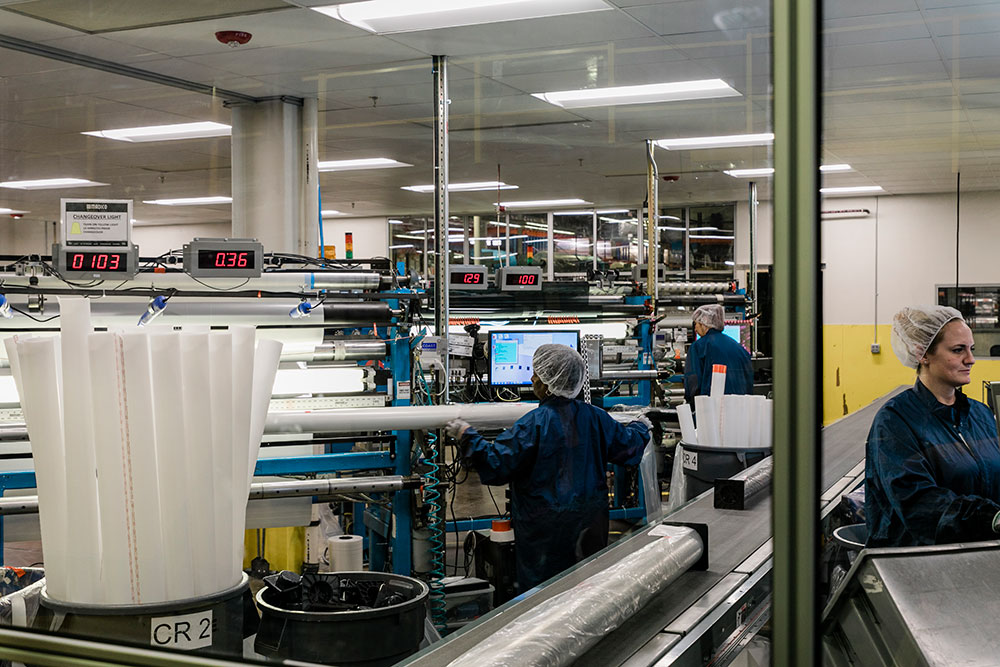For the U.S. manufacturing segment to remain globally competitive in 2020 and beyond, several key areas of reform, improvement, and focus should be addressed.
This includes finding new ways to attract, motivate, and retain employees; developing a new technical education system to grow the pool of available employees with technical expertise; intellectual property reform, and the implementation of sustainability goals linked with LEAN manufacturing improvements.
Over the last decade, the manufacturing landscape has changed due to technology, globalization, and shifting demographics. In recent years, the robust U.S. economy has contributed to increased sales in many markets with consumers more likely to purchase discretionary products than in tougher economic times. In this growth environment, many businesses have benefited as consumer confidence has continued to enable new product development and process improvement to move forward. However, the manufacturing industry has plenty of space to grow and evolve. In the next decade, certain improvements must be made for U.S. manufacturing to stay competitive and to thrive in the face of growing global competition and fluctuating economies.

Finished master rolls – 72” to 2” in width and over 3,000 to 100 feet long are slit to customer requirements in the Madico clean room.
Photo Credit: Amy Pezzicara of Pezz Photo
The U.S. labor force participation rate has declined substantially since its peak in 2000, for both demographic and economic reasons. The same robust U.S. economy that has contributed to increased sales has also led to low unemployment – making recruiting and retaining qualified employees much more difficult.
Manufacturing companies need to adjust compensation policies to not only be more competitive at the time of hiring but to retain employees for many years to come. New entrants to the work force don’t necessarily value the same things that employees from earlier generations wanted. Today many employees desire a defined growth path, great benefits and incentive plans, and employers who offer ongoing employee engagement activities. Telecommuting, flexible work hours, and access to technology can also help companies hire the “right” employees. Successful companies will invest in their employee’s success over the long-term.
There is a shortage of skilled technical personnel in the U.S. The National Center for Education Statistics reports that overall enrollment in Career and Technical Education courses has declined (NCES). The current education system does not support the growth of manufacturing skills in the numbers that are necessary to remain competitive. Many companies resort to sending employees to private training in order to acquire the skills needed to effectively perform the job. This is costly and time consuming.
We need to take a lesson from the European technical school models to help improve our situation, and not simply rely on corporations for training. We need broader access for individuals to receive training after high school in high value skills like controls, instrumentation, networking, electronics, machining, welding, and other technical areas.
The U.S. manufacturing industry has continued seeing more and more competition, primarily from China. New entrants generally compete on price and have dominated most of the Chinese market. Fortunately, brand recognition is still extremely important along with the “Made in the USA” label in many regions of the world. However, product counterfeiting and IP infringement is eroding this advantage.
The International Chamber of Commerce says that global impacts of counterfeiting and piracy is said to reach $4.2 trillion by 2022 (International Chamber of Commerce). Today, companies spend significant time and resources protecting their IP and combating counterfeiting. While it’s important to invest in combatting these situations on their own, manufacturers should also work together to help thwart future advances in counterfeiting and piracy. The International Chamber of Commerce created Business Action to Stop Counterfeiting and Piracy (BASCAP) “to raise awareness of the economic and social harm of counterfeiting and piracy and to petition for greater commitments by local, national and international authorities in the enforcement and protection of intellectual property rights” (International Chamber of Commerce).
There is a push from many top companies globally to provide more products and services that comply with the United Nations Sustainable Development Goals (SDG’s). The belief and strategy behind SDG’s are that making products and providing services that are good for the world will be good for business.
The Sustainable Development Goals adopted in 2015 by all United Nations member states establish a blueprint for prosperity by improving health and education, reducing inequality and tackling climate change all while spurring economic growth. At Madico, Inc. we have developed several biodegradable products such as VueTek®, disposable eye protection. Our solar control window films also help combat climate change by reducing the carbon footprint of both commercial buildings and residences. Many other manufacturers are also tackling SDG’s through new product development initiatives.
The implementation of LEAN Manufacturing and Six Sigma techniques in U.S. manufacturing is now common and an essential part of how most manufacturers do business. LEAN encompasses reducing waste, while Six Sigma is about reducing variation. Organization-wide commitment to both principles improves safety, quality, service and cost; benefiting both the company and the consumer.
In conclusion, there are several areas of the manufacturing industry which can be improved upon as we enter a new decade. In order to make U.S. manufacturing more competitive, businesses must revise the current technical education system, overcome unemployment, and understand the importance of sustainability and LEAN manufacturing. As manufacturers, we must work together to advance these strategies and remain competitive in North America.

Shawn Kitchell
Shawn Kitchell is the President and CEO of Madico, Inc., a manufacturer and distributor of a broad range of protective, functional and decorative materials-based solutions including films, coatings and laminates. He earned a BS in Mechanical Engineering from Missouri University of Science and Technology and a Master of Science in Management from Cardinal Stritch University. He can be reached at skitchell@madico.com.
In this episode, I sat down with Beejan Giga, Director | Partner and Caleb Emerson, Senior Results Manager at Carpedia International. We discussed the insights behind their recent Industry Today article, “Thinking Three Moves Ahead” and together we explored how manufacturers can plan more strategically, align with their suppliers, and build the operational discipline needed to support intentional, sustainable growth. It was a conversation packed with practical perspectives on navigating a fast-changing industry landscape.